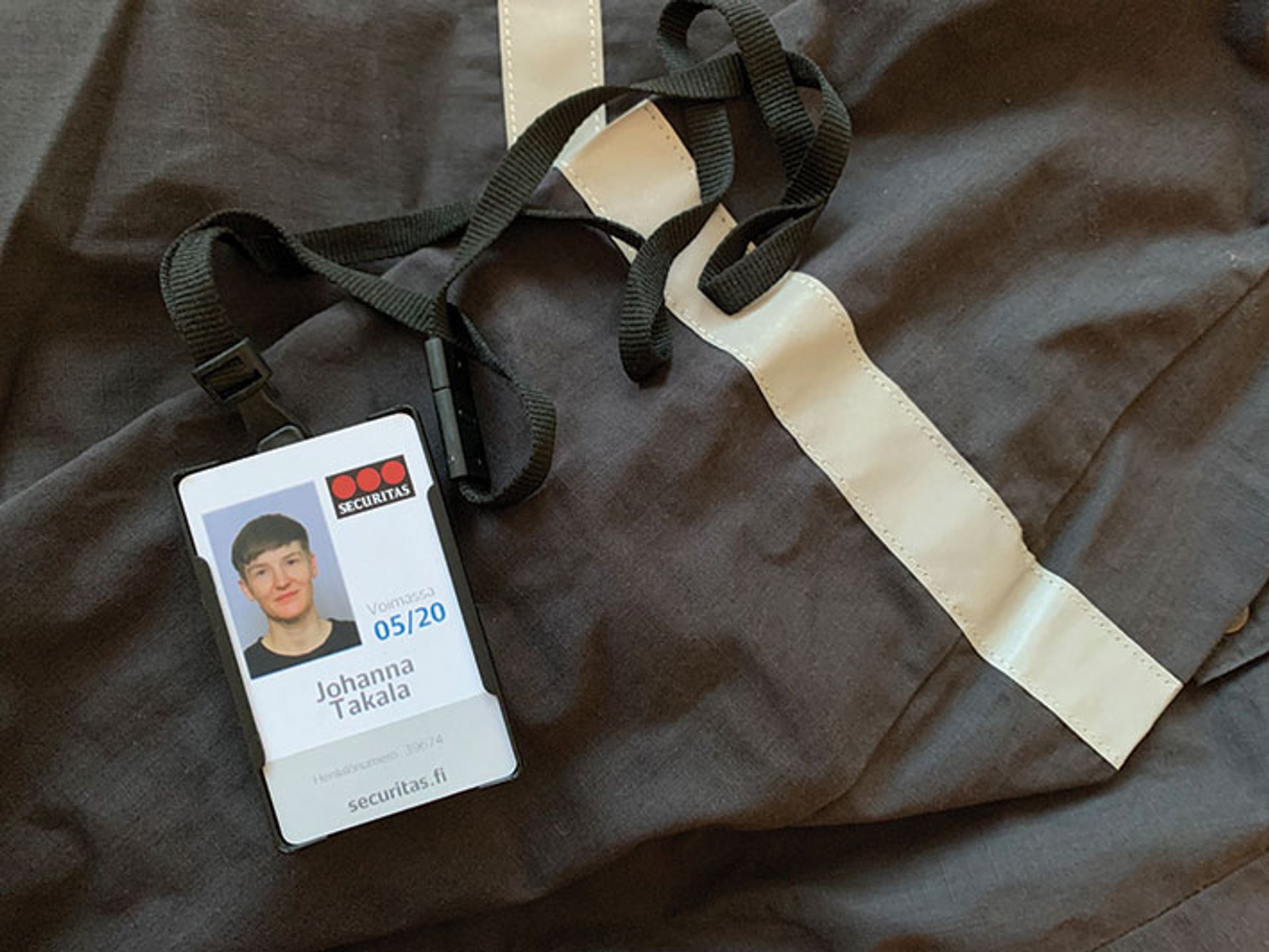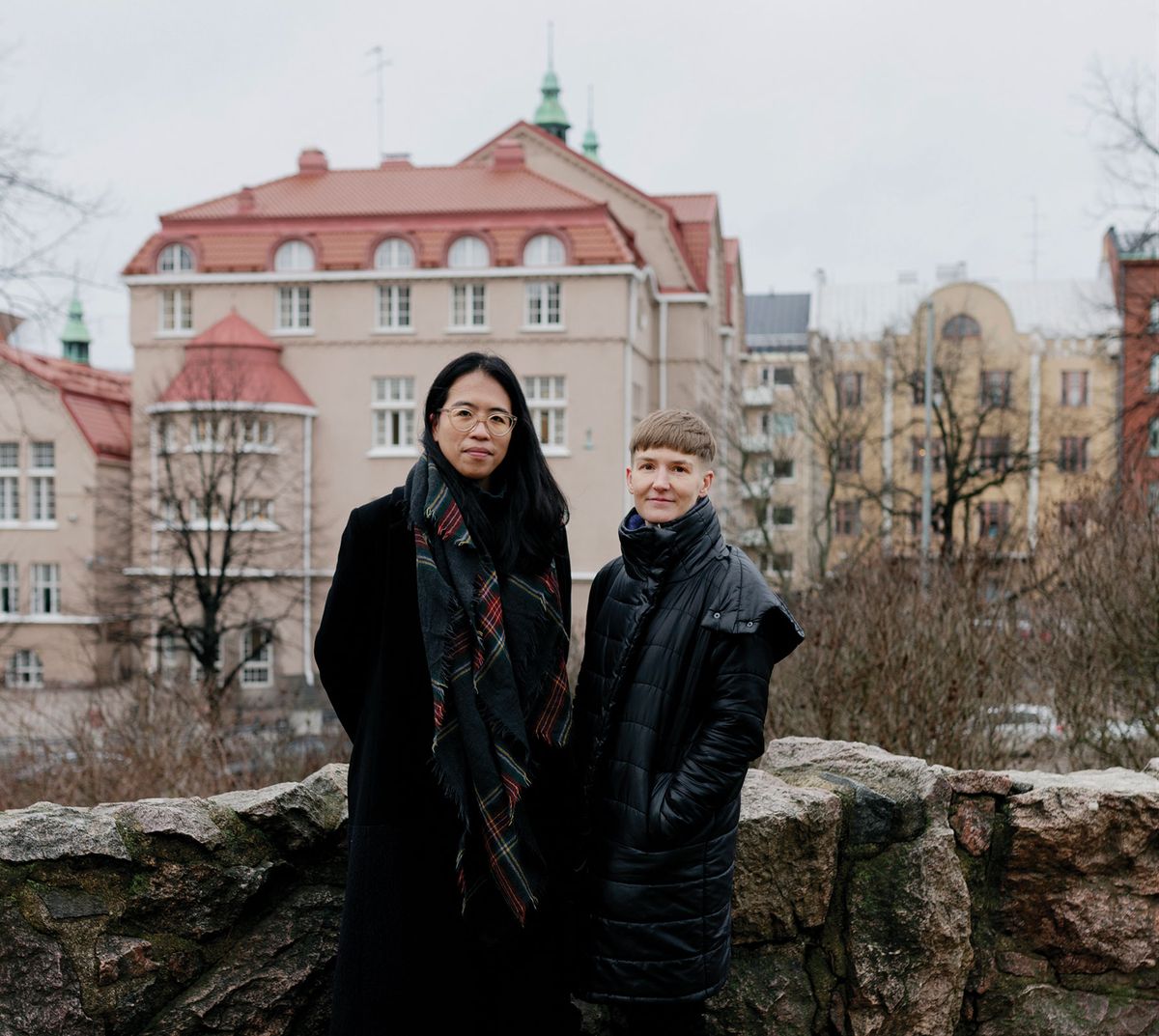The Finnish artist Pilvi Takala first began impersonating people for her art in 2004, during a six-month exchange programme at Glasgow School of Art. For one week, the then 22-year-old wore the uniform of pupils at a local private Catholic school, hanging out in nearby streets and shops until a teacher blew her cover. Takala’s own tutors found her intervention so disturbing that she failed her course.
Since then the artist has examined people’s reactions to violations of accepted social rules or norms by assuming double identities. For one work, she dressed up as Snow White and signed autographs and posed for photographs with children queuing to enter Disneyland Paris. In another, she spent two weeks at Second Home, a trendy East London co-working space where she masqueraded as a wellness consultant called Nina Nieminen who would lightly touch people as she passed them by, earning her the nickname “the stroker”.

Takala’s Securitas ID card: the artist says that private security is difficult area to research “because everything is so secret and closed” Courtesy of the artist
For her Finnish pavilion exhibition in Venice, Takala spent six months working undercover as a qualified security guard for Securitas in one of Finland’s largest shopping malls. “It’s a very hard field to research, because everything is so secret and closed,” she says, adding that a contact at the security firm was instrumental in her getting the gig. Chronic understaffing may also have helped. “It’s often the first job people have and it’s not paid very well. It’s physically hard and shift work is draining, so there’s a lack of workforce in the field.”
After just four weeks of training, she was out on the job. “A lot of learning comes from colleagues in the workplace. You learn by going into situations with older colleagues and following their lead.” However, some of the issues she encountered were exacerbated by this dynamic. “What do you do if your colleague is doing something wrong, if there’s a situation where things get really out of hand, or there’s excessive use of force? Obviously you should do something to stop it, but there’s a strong incentive to always support your colleague. It’s the backbone of this kind of work.”
Such issues are at the heart of her multi-channel video, Close Watch, which follows workshops Takala developed with former colleagues and actors after her employment ended. In one particularly extreme incident, which is played out in the film, an attempt to remove a customer who was caught drinking alcohol in the mall turns violent.
“Nobody is free of biases”
The artist also identifies a culture of racism and misogyny among her co-workers, though she points out that she did not witness anything illegal. “Even if people were making offensive jokes backstage, they still treated people appropriately,” she says. Nonetheless, Takala acknowledges that profiling is a problem in the security industry: “It’s just really hard to do it in a good way. Nobody is free of biases.”
Securitas met with the artist after seeing a rough cut of the video, though whether they plan to increase training or make any changes to working practices is not clear.
Should we even have this arrangement that some people have the power to infringe our basic rights?Pilvi Takala
Ultimately, the exhibition is as much about the private security industry as it is about security as a concept. What does it mean to police and govern each other’s behaviour? As Takala puts it: “Of course the big question is, should we even have this arrangement that, in our society, some people have the power to infringe our basic rights? The whole question of policing and guarding is a super-hard question and I don’t know what would emerge if we didn’t have this system. But it’s very hard to keep the system good. It’s so easy to misuse power.”
Finland
Artist: Pilvi Takala
Organisers: Christina Li; Frame: Contemporary Art Finland
Where:Giardini


